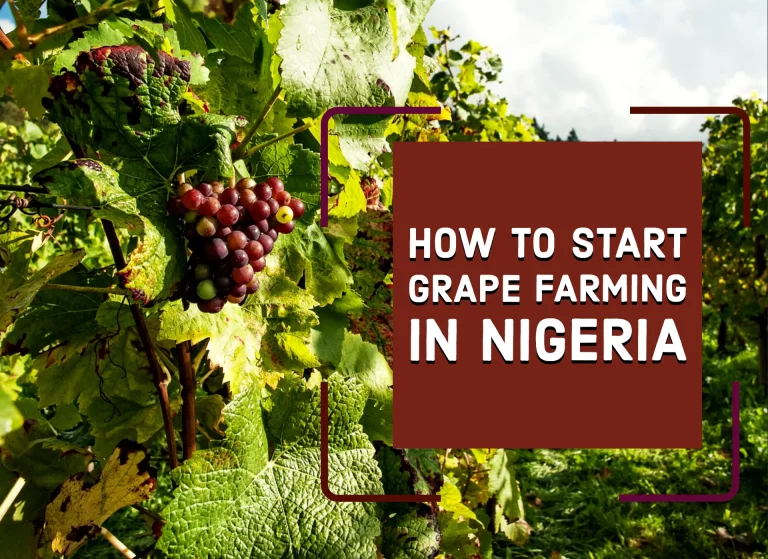Easy Ways to Start Mango Farming Business in Nigeria (2024)
Agriculture remains a profitable business especially as it concerns the production of foods for human consumption to a huge market and the compensation with handsome profits. Of such agricultural business that remains profitable is the Mango farming business in Nigeria.
Mango is a sweet tasty fruit native to Asia. It belongs to the family of “Anacardiaceae”. Mangoes are grown in many tropical parts of the world; from East Asia to West Africa. Since its entry into Nigeria, the fruit has been economical both in the local and foreign markets especially in Benue state.
Mango trees are most fertile in water-drained soils as it is astringent in nature and require little or no maintenance at all. Mango fruits can be used for different purposes at any time of their growth stages.
For instance, an unripe mango fruit can be used to make pickle juice and herbal drinks while ripe mangoes can be used for fruit juice, jams, squashes, syrups, jelly, and soap production.
Mango cultivation for commercial purposes is actively successful in Southeast Asia and West Africa, especially in Nigeria and Ghana. However, a few persons in Nigeria are actively involved in mango farming which leaves most of the wealth from mango farming in the hands of the few.
With the continuous demand for mango in the marketplace due to its delicious flavour, sweet fragrance, and high vitamin A and C nutrients; added interest needs to be given to its cultivation. Hence this article “How to start mango farming business in Nigeria”.
![Easy Ways to Start Mango Farming Business in Nigeria ([year]) Mango Farming Business In Nigeria](https://9jatoday.com/wp-content/uploads/2019/10/mango-322555_960_720.jp_.jpg)
How to Start Mango Farming Business In Nigeria
Let’s now look at the basic steps you need to follow in order to get started in the mango farming business in Nigeria.
Preparing a Business Plan
Having a business plan is essential for any business to thrive and the mango farming business is not an exception.
In your business plan, you should focus on crucial areas like:
- Who is your target market are
- The market strategies and analysis you need to employ to succeed
- The best-suiting geographical location both for sales and production
- The minimum capital requirements
- Transportation costs from the farm to the production factory. Even if the mangoes are not to be processed, the costs needed to convey the mangoes from the farm to the market, consumers, and purchasing agents.
- Operational costs and future goals.
To create wealth from mango processing, you need to ensure that your business plan is well-written and articulated so that your prospective clients can be interested in making investments in your business.
Seed Selection and Land Preparation
Land preparation for starting the mango farming business in Nigeria involves;
1. Ploughing, clearing, and leveling of the land
Before you start planting, ensure that the farmland is clear of grasses and shrubs. After clearing the land, the next is to plow the land to break down large soil lumps for easy root penetrative.
2. Prepare the soil to allow water to drain faster
Though all kinds of soil can be used for mango farming; clay soil retains much water and easily gets clogged up while sandy and loamy soil are quite the opposite.
Also, tilling a dry clayey land is not always easy especially if you are planting during the dry seasons. To this, I suggest you go for the sandy loam soil as it is easy to farm with and doesn’t require many farming activities during cultivation.
3. Collect the type of mango seeds that are suitable for your farmland
For optimum productivity in your mango farming business in Nigeria, you should go for hybrid or grafted mango seedlings.
Though they are not pure mango breeds, these seeds are fairly resistant to pests and parasite attacks. They flourish in all seasons and make better yields.
4. How to plant your mangoes
You can either choose to plant the mango seeds on the mainland or in your backyard after which you would transplant them between 3 to 6 months to a wider area.
Whichever of these proceedings you would be taking for your mango cultivation, the topsoil should be mixed with manure in a 1:1 ratio.
The hole for seed placement should be deep enough (about 10×10m) for easy spread of the mango roots. After digging the hole and preparing the topsoil, then you can place the mango seeds in each hole and cover it with extra soil and water.
5. Weeding and Plant Nurturing
After 14 to 21 days, weed control becomes a necessity for the mango farming business in Nigeria. The weeds pulled out can be added to the topsoil together with other farmland manure. These serve as organic fertilizers for the mango plant.
You should clear your mango plantation every 3 months in the initial one to two years of plantation.
When the branches of the mango trees are up to 90cm, you should prune the plant by cutting out the dead branches. You can mark up dead mango branches with their yellowish-brown crusty colour and feel.
Irrigation is only needed if you are entering into the mango farming business in Nigeria during the dry season or on very dry land.
Employment of Human Resources
During the start-up stage, you will need a few helping hands to help get your mango farming business in Nigeria running. Undoubtedly, there would be a lot of work to do on your mango farm than you and your machinery can pull off combined especially for large-scale farmers.
As one of the lucrative fruit businesses in the country, human labour is needed to fully gear the business into full activity.
These hired workers will help clear and prepare the land for farming and also dig and irrigate the farmland. So basically, you will need 3 to 5 workers depending on your budget.
Marketing Your Mango Fruits
Usually, you will have a lot of fruit dealers come to your farm to buy your mangoes in large quantities. Notwithstanding, you can also transport the mangoes to wholesalers in the local markets and manufacturing companies as well.
In due time, with dedication and good farm management practice, you are sure to receive good profits in your mango plantation business.
Frequently Asked Questions in the Mango Farming Business in Nigeria
How profitable is mango farming in Nigeria?
The low competition rate in the mango farming business in Nigeria makes it very profitable. The few persons who go into mango cultivation in the Southern part of Nigeria do so on a subsistence level.
Are there mangoes in Nigeria?
Mangoes are plentiful and free in some parts of Nigeria during the rainy seasons. Gboko and the surrounding rural communities in Benue waste the excess because not much interest is placed in the mango farming business.
Surprisingly, these mangoes become scarce in Nigeria during the dry season as they are reformed into juice packs and targeted for export.
Who brought mango to Nigeria?
Mangoes came to East Africa in the 10th century through the Persians and to West Africa and ultimately Nigeria during the 16th century through the Portuguese.
How many types of mango do we have in Nigeria
There are 8 major kinds of mango in Nigeria. These include:
1. Benue Mango (The sweetest type of mango)
2. Cotonou Mango
3. German Mango
4. Peter Mango
5. Julie Mango
6. Normal / Ogbomosho / Enugu type / Eastern / Normal / Calabar / Abuja / Opioro mango (Best for making mango juices)
7. Sheri Mango
8. Kerosene Mango
Conclusion
With the limited competition in the mango farming business in Nigeria, you are sure to succeed using the steps we have outlined above.


![How To Start Potato Farming in Nigeria ([year]) Start Potato Farming in Nigeria](https://eucarlagro.com/wp-content/uploads/2023/11/Start-Potato-Farming-in-Nigeria.webp)

![How to Start Coconut Farming in Nigeria [Complete Guide] Coconut Farming in Nigeria](https://eucarlagro.com/wp-content/uploads/2023/11/Coconut-Farming-in-Nigeria.webp)
![How to Start Pawpaw Farming Business In Nigeria ([year]): A Complete Guide Start Pawpaw Farming Business In Nigeria](https://eucarlagro.com/wp-content/uploads/2023/11/Start-Pawpaw-Farming-Business-In-Nigeria.webp)
